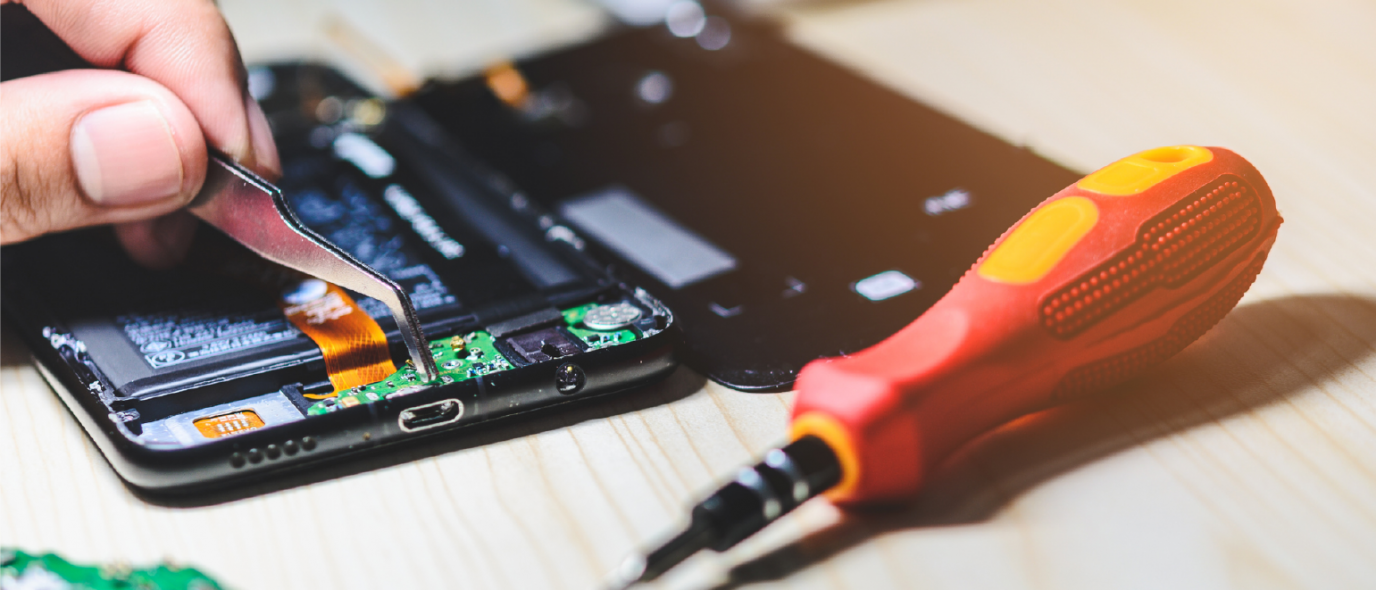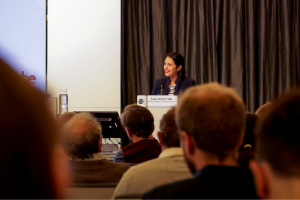PR | Zakia Khattabi introduces a law forcing manufacturers and sellers to inform consumers about the repairability of their devices.
Monday, September 12th, the Federal Minister for the Environment, Zakia Khattabi, submitted her draft law on the "Repair Index" to the different consultative bodies: industry, retail, NGOs and civil society. Inspired by the French model, this legislation, which is in line with the circular economy dynamic, aims to increase the repairability and lifetime of devices while providing consumers with the best possible information about these aspects.

Recupel data show that about 245.000 tonnes of electrical and electronic devices are put on the market in Belgium each year: from washing machines to televisions and small electronic devices such as smartphones and laptops. They all have substantial environmental impact. They require tremendous amounts of raw materials, produce mountains of waste and generate important CO2 emissions during their production. Based on a study by the KUL, "Circular economy indicators for consumer goods", the production of electrical appliances for the Belgian market generates about 3 million tonnes of CO2 emissions annually. This is equivalent to 20% of the annual CO2 emissions generated by housing in Belgium.
All these factors have prompted Zakia Khattabi to make this one of her priorities: "80% of the environmental impact of products is determined during the design stage. Beyond focusing on how we consume, we need to rethink how we produce. We need to move away from the linear model of extraction-manufacture-consumption-discharge to a circular model that optimizes resource use through reuse, repair, or recycling. This entails using fewer raw materials, producing more locally and developing a resilient economic system that is four times beneficial: good for jobs, the environment, health and our wallet. « the repair index is definitely a step in the right direction.”
Electrical appliances account for approximately 14% of the material footprint generated by consumer products in Belgian households. This footprint reflects the amount of raw materials that were required around the world to manufacture these products. Mining activities related to the exploitation of raw materials generate a high pressure on the local environment. This results in significant disruption of ecosystems, including local water and soil pollution. The rising demand for raw materials is pushing for the opening of new mines in Europe. There is also a growing demand for large-scale offshore extraction. The marine environment may be affected accordingly. For some raw materials, there is no guarantee of supply due to economic or geopolitical reasons. This poses a threat to the energy transition since it requires a lot of critical raw materials to create the infrastructure needed to produce and store green energy. The excessive use of raw materials was already emphasized in the report "Limits to growth" by the Club of Rome in 1972. This issue must be dealt with head on! That is why I put the proposal forward to establish an observatory to analyze the flows of raw materials, from and within Belgium, including the evolution of prices on the world market", declares the Minister.
With the repair score between 0 and 10, the repair index will indicate to the consumer the level of repairability of the device: the higher the rating, the greater the repair capability. This rating will take into account a number of factors; easy disassembly, availability of spare parts and their delivery time, cost of spare parts, availability of technical information and maintenance and repair manuals.
A longer lifespan reduces the life cycle cost of a device. This cost includes the purchase price, the lifespan and the maintenance and repair expenses. Case studies of vacuum cleaners and washing machines show that it is often less expensive to fix a device than to replace it with a new one.


